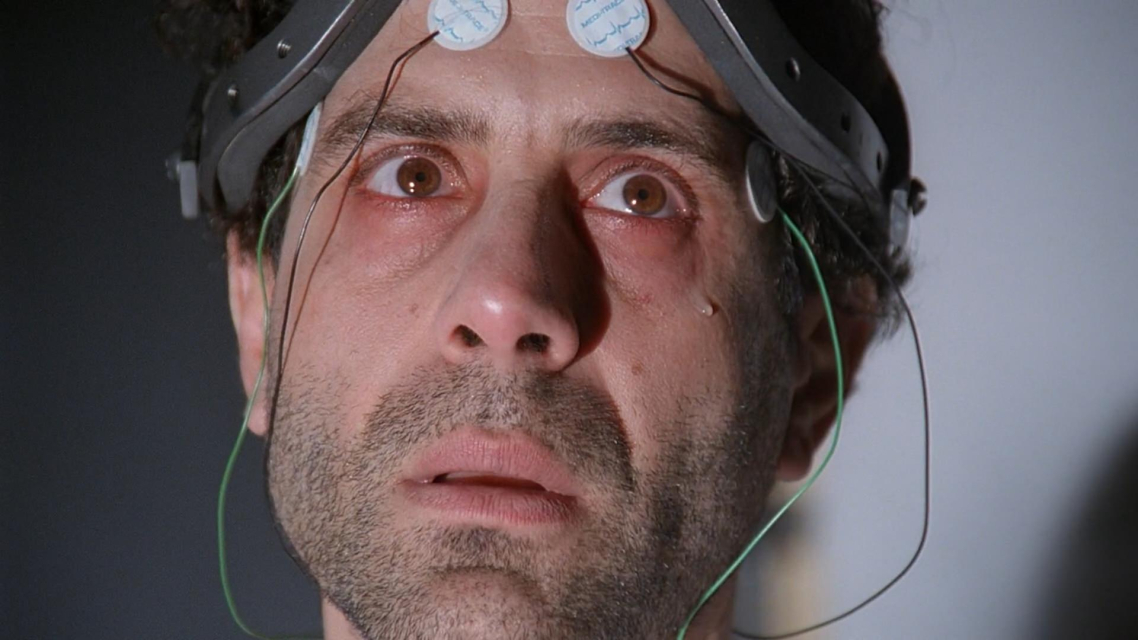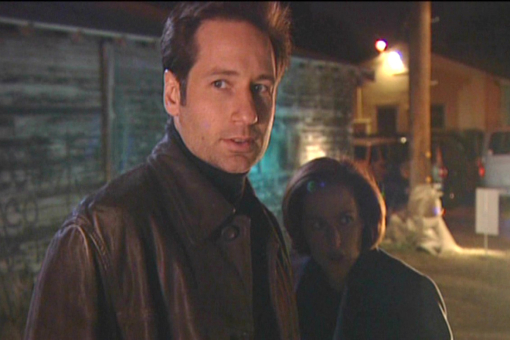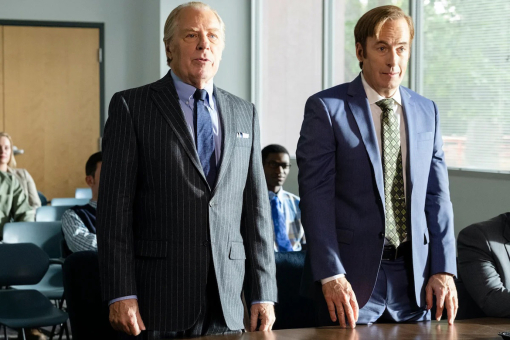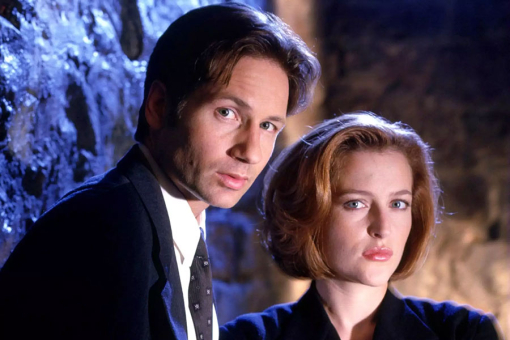Thirty years ago, on May 5, 1995, The X-Files introduced audiences to one of television’s most prolific writers: Vince Gilligan.
But at the time, a career in TV was far from the future Emmy winner’s mind.
“I started out writing features. I thought I was going to be a screenwriter,” Gilligan tells the Television Academy in this exclusive interview honoring his first episode of television ever, “Soft Light.”
The second season entry of the iconic Fox sci-fi series centers on agents Fox Mulder (David Duchovny) and Dana Scully (Gillian Anderson) struggling to find who — or what — is responsible for a series of (what else?) unexplained murders where the victims leave behind only a scorched, ashen stain before their bodies vanish. The culprit? Then-relative newcomer (and future Emmy winner) Tony Shaloub and his partially sentient — but entirely lethal — shadow.
In the presence of light, the fearful but tragic Chester Ray Banton (Shalhoub) helplessly watches his shadow stretch and elongate along various surfaces. It even reaches under closed doors. Upon contact with anyone close enough to it, the shadow sucks them down into what appears to be a vaporish, mini black hole akin to those found in the roadrunner-capturing arsenal of Wile E. Coyote. But those that sink into this black hole never re-emerge. Instead, all that remains is a scorch mark flickering with purple energy.
WATCH: Vince Gilligan's Epic, 4-Hour Interview on Casting Breaking Bad and Working on The X-Files
The inspiration for one of the second season’s most memorable “Monster-of-the-Week” episodes occurred to Gilligan in a Los Angeles hotel room, on the eve of his first meeting with X-Files creator Chris Carter.
“I was watching TV, and the lights were off,” he says. “I was looking at my shadow on the wall, and I thought, ‘Wouldn't it be creepy if it started moving independently of me?’”
That small conceit launched one of television’s most successful careers — which, to this day, still surprises the humble and appreciative Gilligan, who went on to achieve major success with the AMC series Breaking Bad and Better Call Saul. Especially given how, as he puts it, “unproducible” the first draft of “Soft Light” was.
“I had no idea what I was doing,” he recalls with a chuckle. “I remember reading it — my heart was sinking — and I was thinking, ‘Yeah, I shouldn't even get paid for this.’”
Below, Gilligan celebrates the 30th anniversary of “Soft Light” by sharing behind-the-scenes stories about its conception, how the end of his then-feature career (and WGA health benefits) started his TV path and why Chris Carter took a meeting with a relative unknown from Powhatan, Virginia.
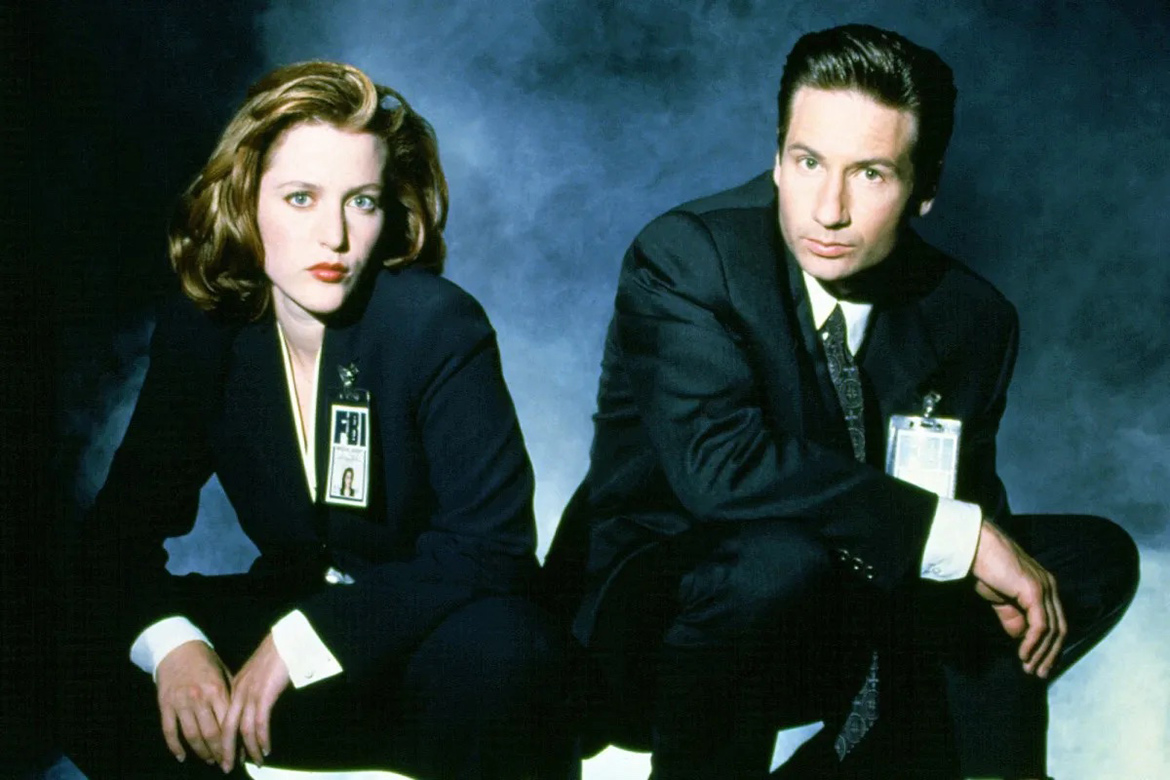 X-Files stars Gillian Anderson and David Duchovny / Photo credit: Fox
X-Files stars Gillian Anderson and David Duchovny / Photo credit: Fox
Television Academy: It’s fitting to be talking to you about “Soft Light” today, because I was recently where the episode is set — Richmond, VA. It was interesting seeing the Jefferson Hotel get a name change for the episode.
Vince Gilligan: But it was originally the Jefferson Hotel [in the script]. And there were lines in the original script, talking about the [hotel’s] famous alligators that were once in the fountain that is in the lobby.
Wow, I didn’t know that. So Mulder and Scully’s discussion about the gators at the hotel is a remnant of your original draft?
Yeah. It was so big and over the top and insane and unproducible. And [the producers] took it — they said, “Thank you very much” — and then they rewrote, probably, 70%, 80% of it. They were very nice about sending me the script back after it had gone through the rewrite process. I remember reading it, my heart was sinking, and I was thinking, “Yeah, I shouldn't even get paid for this.”
Let’s back up. How did you and your script end up at The X-Files?
It was [around] 1994, and I lost my Writers Guild insurance — because it had been so long since I had optioned anything or sold anything. It was a really low point in my career. And the scripts that I was writing, I was taking way too long writing these movie scripts. And when I finally finished them, no one was buying them.
And, by the way, in Charlottesville? That’s where I won a screenwriting award in 1989, at the Virginia Film Festival. It was only the second year of [the festival’s] existence.
Mark Johnson, who had just produced the movie Rain Man, was one of the judges. I was one of the two other fellow Virginians, and I won this. But I got very lucky, because Mark contacted me after the event in October of 1989, in Charlottesville, at UVA. And he said, “You got any other scripts?” And that was the beginning of my career right there. That script was [the 1998 film] Home Fries.
So, was “Soft Light” a spec script or freelance assignment?
Freelance. And I always say, I'm the Kramer of the television writing business — Kramer from Seinfeld — because I was living in Virginia at the time, in Powhatan, Virginia, which is halfway between Richmond and Charlottesville. And I was concentrating on writing movies.
But I was watching this TV show that came on in fall of 1993, called The X-Files. And I was a giant fan of it from the very first episode. And I was talking to my agent at the time, who's retired now, a wonderful woman named Rhonda Gomez, [who worked] at Triad Artists. I was talking to her one day, and she said, “Come on, get this newest movie script finished so I can go try to sell it.”
She was trying to be supportive and encouraging, and we wound up talking about other stuff. And I said, “Have you seen The X-Files? It's been on for a couple of weeks now. It's great.” This was in late '93. And she said, “Yeah, I haven't seen it yet. But, actually, I'm related to the fellow who created [the show], related by marriage to his wife.” And so this was like Hollywood nepotism at its finest [laughs].
She then said to me, “Would you like to meet him the next time you're out to California on movie business? His name is Chris Carter.” I said, “Yeah, I know. I see his name in the credits.” She said, “I think I can get you in there.” So I was out on movie business sometime in early '94, I think. And I went in to meet him. This is why I’m the Kramer of television here, the real-life Kramer, because it's like — all I knew is I wanted to shake this guy's hand and say, “I love your work.” What I didn't know at the time is that they were drowning.
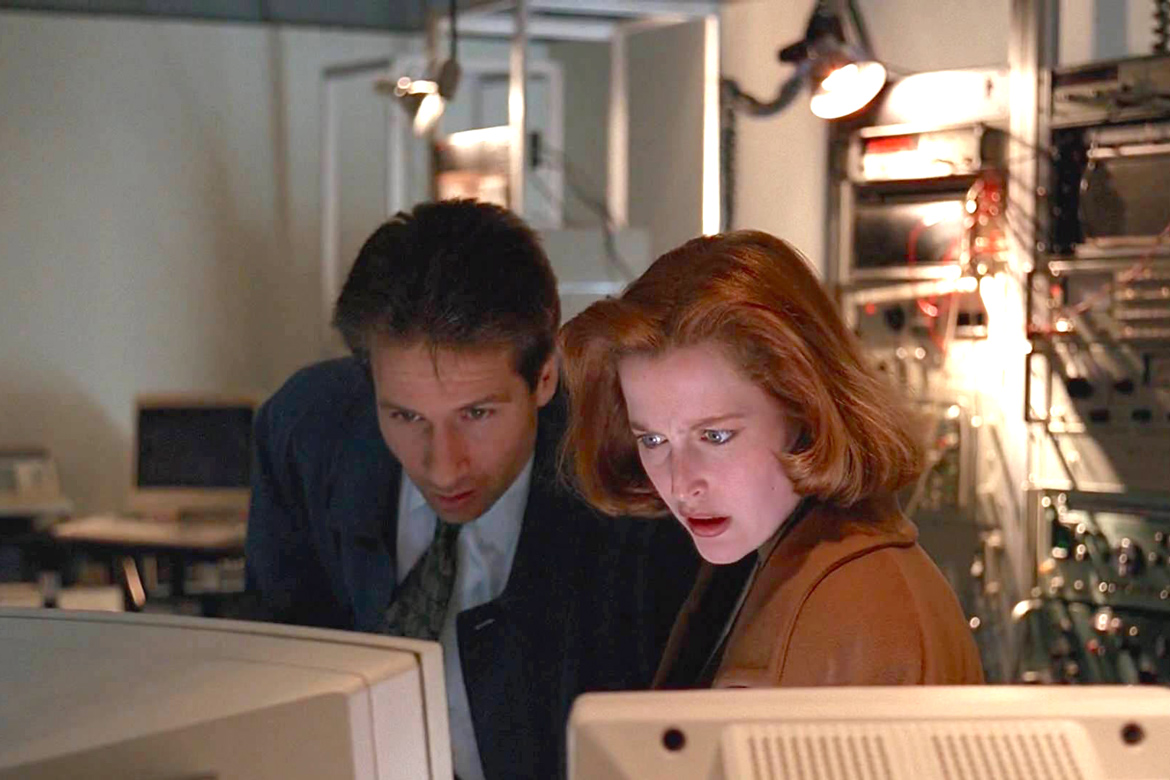 Mulder and Scully struggle to find their "Monster of the Week" in a key scene from "Soft Light."
Mulder and Scully struggle to find their "Monster of the Week" in a key scene from "Soft Light."
Were they struggling to get scripts in to feed production?
They had a 26 [episode] order for the second season of X-Files, and they didn’t have enough episodes. They were taking any warm body who walked through the door. [Carter] was like, “Do you have an idea for an X-file?” I said, “What do you mean? Write one?” And he said, “Yeah.” And I just literally made up a bunch of crap on the spot.
Was there something that sparked the idea for “Soft Light” before you were put on the spot, or —
The night before, I was sitting on the sofa in my hotel on Beverly [Boulevard]. I was watching TV, and the lights were off. I was looking at my shadow on the wall, and I thought, “Wouldn't it be creepy if it started moving independently of me?” And that became this episode, “Soft Light.” I just pitched it to them. And in the original version, this [shadow] was alive and it moved separately.
And the original script I wrote — they hired me pretty much on the spot, like Kramer falling ass backward into good luck. They hired me right on the spot to write a freelance, so I wrote a freelance episode — which was my very first episode of TV. If it had been produced as it was written, it would have cost somewhere — just for that one hour of TV — between $40 and $50 million.
Wow.
Some of the character names are the same, and the shadow doesn't move anymore on its own, but they did a great thing in hindsight. They made it producible, especially because — in the second season — the budget wasn't [much]. It became [more] later.
But this sparked a solid working relationship for you with the show.
It was the beginning of a beautiful friendship. I wound up realizing that my movie writing career was going nowhere. I realized — even though I bought a house in Virginia, in Powhatan County — I wasn't getting anything done there. I needed to be surrounded by writers who could get some work out of me. But I was lucky that my career was at a low point — it dawned on me that I needed to move to California, I needed to work in TV instead of in the movies, and I never looked back. I mean, if I had not taken that opportunity to work with those guys at The X-Files, I wouldn't be in the business anymore. I don't know what I'd be doing now, but I would not have made it in the movies.
I cannot tell you how fondly I think of television and how it really saved my career. I got very lucky.
This article has been edited for length and clarity.
The X-Files is now streaming on Hulu.



